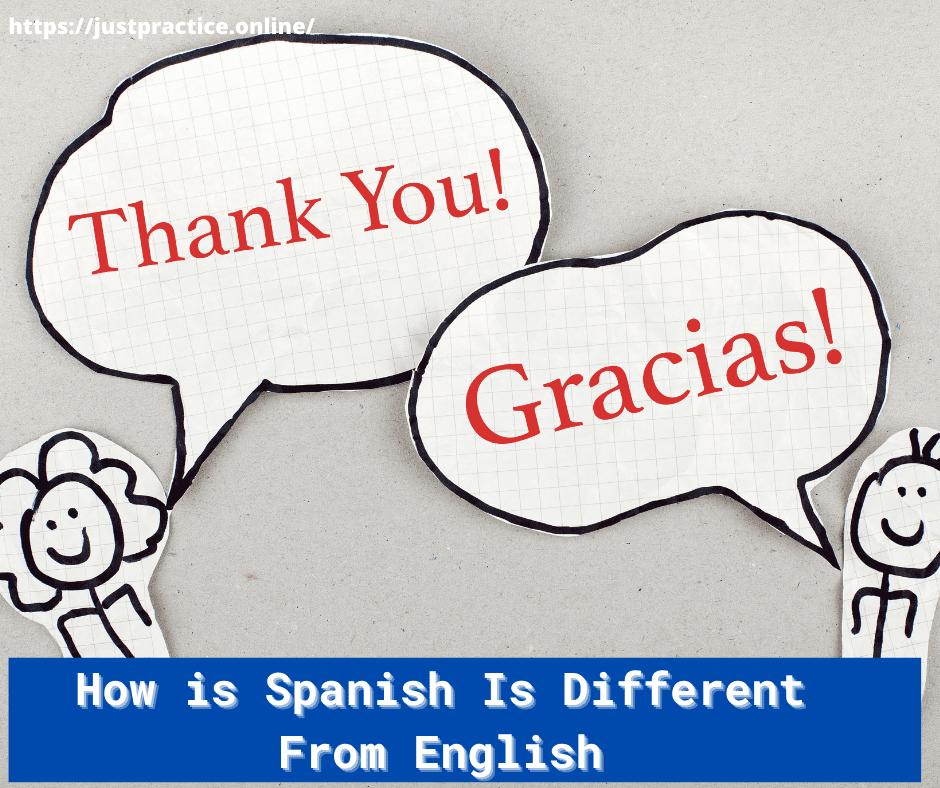
The Spanish language can sound unique and difficult to learn. It does have similarities with other languages but there are also factors that set it apart, especially from English. The Spanish and English languages have a number of differences in several aspects.
English speakers use the back of their mouths when speaking while native Spanish speakers speak using the front, together with their tongue and mouth when uttering Spanish words. To help you become fluent in speaking Spanish, you can practice their speaking method in front of a mirror using a piece of paper to hold your tongue in front of your mouth. To become a better Spanish speaker you will need to produce less air when speaking. In contrast to the English alphabet, where letters and letter combinations sometimes produce similar sounds, the letters in the Spanish alphabet each represent a single sound.
The Spanish alphabet ‘I’ and ‘R’ in particular, require ample practice with the way that they are pronounced, which is most distinct from English pronunciation. The letter ‘R’ can be used in a Spanish accent in two ways – soft and hard. The ‘soft’ pronunciation sounds similar to an American calm pronunciation of ‘tt’ in the word ‘butter’ and is written with a single ‘r’. While the ‘hard’ pronunciation is a multiple vibrating sound, and the sound is rather like a Scottish rolled ‘r’ and written as ‘rr’. There is no specific rule when rolling a Spanish ‘r’. The key is just constant practice until it comes naturally as it is probably the Spanish sound will cause any native English speaker most difficulty. Additionally, the letter ‘I’ in Spanish has no exact equivalent in English. It is similar to the English ‘I’ when used, but it is pronounced in a shorter fashion.
When studying the Spanish language, beginners commonly have more difficulty in distinguishing between direct and indirect objects compared to English as there is no clear distinction. For example, “It gets him down” and “I showed him my notes”. In English, the word ‘him’ can be both considered as direct and indirect object. Whereas in Spanish, using the sample phrases, ‘him’ is both ‘lo’ and ‘le’ and each is used in a different manner in each phrase.
Spanish and English also clearly differ in accent and punctuation. In Spanish, all vowel sounds can acquire an intonation which may impinge on the emphasis and sometimes even on the meaning of the word. The letter ‘ñ’ is unique to Spanish. The ‘ñ’ in the word ‘mañana’ is pronounced to sound like ‘manyyahna’. When it comes to punctuation, the Spanish language differs from others in that their question and exclamation marks are inverted at the beginning of the question or exclamation.
The Spanish language is indeed a very interesting language to learn. It is also very challenging to study. However, learning Spanish can prove to be very rewarding for any individual who is prepared to put in the necessary effort and commitment.
I am currently perfecting my thesis on gate.oi, and I found your article, thank you very much, your article gave me a lot of different ideas. But I have some questions, can you help me answer them?
Dear justpractice.online Followers,
I just wanted to take a moment to express my gratitude for your support and engagement with my blog. It has been a pleasure sharing my knowledge and passion for the English language with all of you.
Your feedback and comments have been invaluable in shaping the content of my blog, and I am constantly inspired by your eagerness to learn and improve your language skills.
As we continue on this journey together, I am committed to providing you with helpful tips and insights to help you achieve your English language goals. Thank you for being a part of this community, and I look forward to continuing to learn and grow with all of you.
Best regards,
Salah Hechache
Dear justpractice.online Followers,
I just wanted to take a moment to express my gratitude for your support and engagement with my blog. It has been a pleasure sharing my knowledge and passion for the English language with all of you.
Your feedback and comments have been invaluable in shaping the content of my blog, and I am constantly inspired by your eagerness to learn and improve your language skills.
As we continue on this journey together, I am committed to providing you with helpful tips and insights to help you achieve your English language goals. Thank you for being a part of this community, and I look forward to continuing to learn and grow with all of you.
Best regards,
Salah Hechache